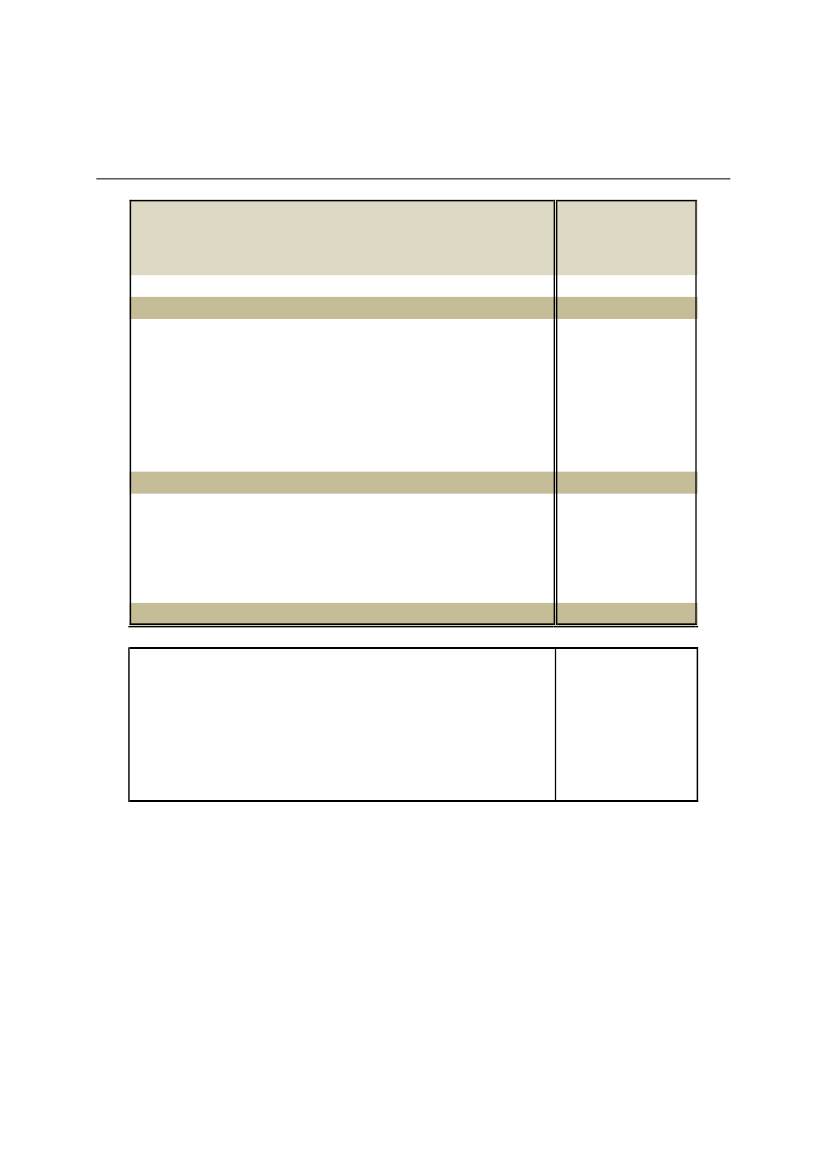Europaudvalget 2013-14
Det Europæiske Råd 6/3-14 Bilag 1
Offentligt









SUPPORT PACKAGE FOR UKRAINEThis paper sets out the main concrete measures that the Commission is proposing forthe short and medium term to help stabilise the economic and financial situation inUkraine, assist with the transition, encourage political and economic reforms andsupport inclusive development for the benefit of all Ukrainians. These measurescombined could bring overall support of at least€11 billionover the coming yearsfrom the EU budget and EU based international financial institutions (IFIs) in additionto the significant funding being provided by the IMF and World Bank.This engagement constitutes both a response to help stabilise the country as well as tosupport the reform programme and further enhance ownership by the Ukrainianauthorities. While some of these measures can be carried out quickly, others willrequire further planning and preparation. For many of them, the urgent and activesupport of the Council and Parliament are necessary.Underpinning this approach is the ambition to help Ukraine fulfil the aspirations whichhave been clearly demonstrated by citizens and civil society in recent weeks in theunprecedented events in Kiev and throughout the country.••
•••••••
Highlights:€3billion from the EU budget in the coming years, €1.6 billion in macro financialassistance loans (MFA) and an assistance package of grants of €1.4 billion;Up to €8 billion from the European Investment Bank and the European Bank forReconstruction and Development;Potential €3.5 billion leveraged through the Neighbourhood Investment Facility;Setting up of a donor coordination platform;Provisional application of the Deep and Comprehensive Free Trade Area whenAssociation Agreement is signed and, if need be, by autonomous frontloading oftrade measures;Organisation of a High Level Investment Forum/Task Force;Modernisation of the Ukraine Gas Transit System and work on reverse flows, notablyvia Slovakia;Acceleration of Visa Liberalisation Action Plan within the established framework;Offer of a Mobility Partnership;Technical assistance on a number of areas from constitutional to judicial reform andpreparation of elections.
All these measures should be seen as the Commission's contribution to a European andinternational effort at providing a sustainable way out of Ukraine's difficult economicsituation and to support its economic and political transition. The action of MemberStates in complementing and reinforcing what the Commission can mobilise on itsown is crucial. The participation of partner countries as well as of the internationalfinancial institutions, notably the IMF, the EIB, the EBRD and the World Bank, isessential to leverage what we can all offer, increase the visibility of our collectiveaction and improve its impact. All elements and instruments need to be pulled togetherto ensure an effective and coherent European Union and international response.1
Part of the EU's effort is to support Ukraine on its path towards political and economicreform, including those set out in the Association Agreement /Deep andComprehensive Free Trade Area (AA/DCFTA), which we stand ready to sign. It isessential to raise public awareness in Ukraine as well as in third countries on thebenefits and opportunities that such reforms can offer both for Ukraine and the regionas a whole.ECONOMIC AND FINANCIAL ASSISTANCE:Economic support takes the form of both macro financial and development assistance.The Commission is ready to mobilise some€3 billionfrom the EU budget in thecoming years with the undertaking that a substantial amount of money can be maderapidly available to help Ukraine address its more urgent needs, including stabilisingthe financial situation and supporting the functioning of the new administration.Macro-Financial Assistance:A total of€1.6 billionis foreseen for macro financial assistance (MFA). In the shortterm, the Commission is ready to mobilise €610 million in loans under MFA whichhas already been agreed but is conditional on the signature of an agreement betweenthe government and the IMF. The Commission is willing to propose further MFA ofup to €1 billion. The Commission has already deployed a mission on the ground toassess Ukraine's financial needs and to prepare the ground for such MFA. This team isworking closely with the IMF.Development assistance:Over the next seven years, a development assistance package to Ukraine in the form ofgrantscould amount to a minimum of€1.4 billion.The Commission is currently preparing a new€140 millionprogramme for2014thatwould aim at improving the financial capability of the government and support theinstitutional transition, thus reinforcing the foreseen impact of the MFA. This wouldbe complemented by actions aimed at supporting civil society. The size of such aprogramme could beincreased up to €200 millionif there were to be redeploymentfrom within the European Neighbourhood Instrument (ENI) and if Ukraine were tobenefit from the umbrella programme ("more for more") on the basis of provenprogress in deepening democracy and respect of human rights.For the remaining period of2015-2020,a yearly bilateral envelope of approximately€130 millionis currently foreseen as part of the ENI with anadditional €40-50million per yearfrom the afore-mentioned umbrella programme ("more-for-more")subject to proven progress in deepening democracy and respect of human rights andfurther significant funding from the Neighbourhood Investment Facility (NIF)described below.2
As far as existing programmes are concerned, the Commission is currently funding anumber of on-going sector budget support and technical assistance programmes whichwill provide input to the new Government in key areas such as economic development,public financial management and justice. This represents approximately€400 million.In addition, the NIF will be mobilised in favour of bankable investment projects inUkraine. Experience with the implementation of the NIF in the East over the pastprogramming period has shown that, for an amount of€200-250 million of grantsforeseen for Ukrainefor blending,one could expect a leverage effect that wouldgenerate loans ofup to €3.5 billion.The participation of International FinancingInstitutions (IFIs) will be crucial to allow this leveraging and to exploit its fullpotential.Within the NIF framework, the Commission is now working on the possibility ofsetting up a dedicated window to support the implementation of the AA/DCFTA forthe relevant countries. This would allow our partners to have access to a guaranteedand dedicated envelope to support investment in sectors crucial for modernisation andthe adoption of EU standards (in areas such as environment and energy). We are alsolooking at using this facility to further leverage the investment opportunities in theprivate sector.The Instrument contributing to Stability and Peace (IcSP), formerly the Instrument forStability, could be deployed to target urgent actions, for example, on police reform andelectoral support.Up to €20 millioncould be mobilised quickly if appropriate actionsare identified anda further €15 millioncould be added from the CFSP budget tosupport measures in relation to security sector reform.Finally, Ukraine is the most important country for the EU for operations in the area ofnuclear safety and security. Currently, projects are being implemented under theInstrument for Nuclear Safety Cooperation for a total amount of€50 million,in thefield of nuclear waste management and social projects in the affected area around theChernobyl exclusion zone. In addition, a further envelope of€36.5 millioncan becontracted in the very short term for actions in this field. The programming period forthe new financial period is on-going, which will allow the EU efforts in this area to befurther stepped up.The Commission reiterates its readiness to establish anEU Trust FundshouldMember States support such an initiative. This would create a vehicle that would allowMember States to make substantial further financial contributions and would increasethe visibility of the EU, including its Member States, and contribute to an effective,swift and coordinated disbursement of funds.TheEuropean Investment Bank(EIB) is the EU's own policy-driven bank andalready has a project pipeline in Ukraine of up to€1.5 billion for the next threeyears.The EIB could significantly scale this up, without diverting from other regions,3
if adequate guarantee provisions were to be granted and if the political and operationalconditions allow. The EIB could then provide financing for long-term investments ofup to €3 billion for 2014 – 2016in support of both the local private sector andeconomic and social infrastructure. After the Mid-Term Review of the EIB ExternalLending Mandate planned by end 2016, the EIB could further increase its activity until2020 via the activation of the€3 billionoptional mandate already foreseen, subject tothe agreement of additional funding by the budgetary authority.In its operations, the EIB works closely together with the other IFIs active in theregion thereby contributing to a significant leverage effect. The Commission will alsoexplore the opportunity for ring fencing and front loading some of the additionalguarantees for the EIB funds secured with the FEMIP reflows for AA/DCFTA relatedlending.For its part, theEuropean Bank for Reconstruction and Development(EBRD) is anIFI in which the EU and its Member States account for a majority of the shareholding.As part of a coordinated financial assistance programme in support of crediblestructural and macroeconomic reforms, the EBRD could make€5 billionavailableover the same period, though that amount could be exceeded if economiccircumstances permit.INTERNATIONAL DONOR CO-ORDINATION MECHANISM:The Commission remains in close contact with both the IMF and the World Bank onthe ground in Ukraine and at Headquarters. In order to help ensure effective deliveryand maximise the impact of the EU economic and development assistance describedabove, as well as heighten its visibility, the Commission is exploring avenues toenhance international donor coordination by setting up, together with the internationalcommunity and IFIs, an ad hoc donor coordination mechanism.Such a mechanism could take work forward on the basis of a needs assessment and ofthe reform programme prepared by the Ukrainian authorities, and provide a sustainableway out of Ukraine’s difficult economic situation supporting economic and politicaltransition.This donor coordination mechanism could take the form of aninternational platformbased in Kiev which would meet regularly to closely coordinate donor efforts toaddress the economic situation of the country. The political guidance will be providedby high level coordination meetings of the international platform. The Commission iswilling to host the meetings in Brussels. This mechanism is open to the participation,namely, of EU Member States, IMF, World Bank, EBRD, EIB, and interested thirdcountries. EU participation would be led on the ground by the EU Delegation.
4
TRADE AND INVESTMENT:While economic and financial assistance are essential, trade and investment are alsokey instruments in helping secure long term sustainability for Ukraine. All Ukrainiansstand to benefit enormously from the ambitious DCFTA trade deal with the EU. Forexample, Ukrainian exporters will save almost half a billion euros annually due toreduced EU import duties; Ukrainian agriculture will benefit from cuts in duties onagricultural and processed agricultural products of almost €400 million. The differentlevels of economic development of the EU and Ukraine are reflected by theasymmetrical nature of the Agreement. It is designed to provide Ukraine withfavourable treatment, for example, through the faster and broader opening of the EUmarket by the front loading of tariff dismantlement granted by the EU combined with alonger period for similar measures on the Ukrainian side.The Commission stands ready to react quickly to ensure the rapid provisionalapplication of the AA/DCFTA once a decision on its signature has been made.In the meantime, the Commission is ready to offer the early application of thoseprovisions of the agreement related to the imports of goods (i.e. the reduction of tariffsand opening of tariff rate quotas) by proposing a draft Council/Parliament Regulationon such so called 'autonomous trade measures'. These transitional trade measures,unilateral in nature from the EU side, would allow Ukraine to benefit substantiallyfrom many of the advantages offered by the Agreement already now, that is to say, inthe period until it could be signed and provisionally applied. However, the rapidimplementation of such support measures would require a clear commitment by theCouncil and the EP to fast track the approval process.As part of the effort to mobilise all of its assets and instruments in support of Ukraineat this exceptional time, the High Representative and the Commission are also ready toconvene a High level Investment Forum/Task Force to explore investment and co-operation possibilities in Ukraine. This should bring together a wide range of privateand public economic actors, Ukrainian and EU and IFIs together with the host countryto maximise their collective impact and ensure a sustainable, democratic andprosperous future for the people of Ukraine. Such an event would also provide anopportunity to help Ukraine to maximise the benefits of autonomous trade measuresand the AA/DCFTA.ENERGY AND TRANSPORT:Energy and energy security, and affordable prices, are essential for the stability andsecurity of Ukraine. The EU will work with the new government in Ukraine, includingthrough budget support, to ensure long term diversification of supplies and to makesure that the Ukrainian gas transmission system continues to be an essential transitroute for gas supplies to the Europe. As such, the Commission will continue to workwith the government in Ukraine to modernise its gas transmission system in co-operation with the EIB, EBRD and World Bank, as gas sector reforms in line with the5
Energy Community commitments are carried out. Provided that certain conditions arefulfilled, an initial loan could be possible in the near future.In the short term, the Commission is ready to assist Ukraine in diversifying its gassupply routes, notably by ensuring that reverse flows with the EU, notably viaSlovakia (in addition to Poland and Hungary as is currently the case), can beoperationalised as soon as possible. The Commission should ensure, together withSlovakia, that the Ukrainian and Slovakian transmission system operators establish thenecessary rules and process that allows gas to flow from EU to Ukraine in increasedcapacities in order to enhance the security of supply in Ukraine. The text of aMemorandum of Understanding between the transmission system operators ofSlovakia and Ukraine for the physical reverse flow via the Ukarine-Slovak pipelinewas brokered by the Commission in December 2013 but was not signed. TheCommission is ready to facilitate the signature by the two operators if requested. TheCommission remains committed to continue working with the relevant Member Statesto facilitate the creation of additional reverse flow corridors to Ukraine via Bulgariaand Romania and via Croatia and Hungary.In the medium term, should circumstances allow, the Commission continues to beready to promote a trilateral approach (between EU, Russia and Ukraine) for themodernisation of the Ukrainian gas transmission system.With regard to transport, following the initialling of the EU-Ukraine CommonAviation Area Agreement at the Eastern Partnership Summit in Vilnius, theCommission is advancing rapidly in preparatory work to allow the Council to take adecision on the signature of the Agreement and stands ready for its earlyimplementation. The Commission is determined to continue working on theenhancement of the EU-Ukraine transport relations, in particular in the framework ofthe Eastern Partnership Transport Panel.MOBILITY:Mobility is an important area where the Commission believes meaningful, visible,short-term steps should be taken. While a number of them depend on the politicaldecisions of the Member States, the Commission is willing and ready to pro-activelyfacilitate swift and efficient coordination in this area. The Commission fullyrecognises the importance of mobility and people-to-people contacts for Ukrainiancitizens and will support Ukrainian efforts to move forward the visa liberalisationprocess as quickly as possible in line with the agreed conditions of the VisaLiberalisation Action Plan. Progress will of course depend on how the new authoritiesare able to tackle the most important outstanding issues. However, the Commissioncan and will do its outmost to help solve the remaining issues in an acceleratedmanner. Completing the visa liberalisation process will lead to the abolition of thevisa obligation for Ukrainian citizens wishing to travel to the Schengen zone for up to90 days within 180 days.
6
In the meantime, a Visa Facilitation Agreement (VFA) is in operation between the EUand Ukraine and the Commission encourages Member States to fully exploit itspotential. It gives Member States the possibility of choosing from a series of measures,including waiving visa fees for certain categories of citizens. In addition, the VisaCode gives the Member States additional options to waive the visa fees for furthercategories, such as, for example, children.In addition, the Commission is willing, subject to the agreement of Member States, tooffer Ukraine a Mobility Partnership promoting people-to-people contacts and legalmigration options, and offering a framework for cooperation and practical support tothe Ukrainian authorities going beyond the visa liberalisation process. Such a MobilityPartnership could be established very quickly should there be an interest on theUkraine side to do so.PEOPLE TO PEOPLE LINKS AND EDUCATION:Under the new Erasmus+ programme, the EU will offer more opportunities for studentmobility, academic cooperation and youth exchanges. The Erasmus programme willsupport short-term student mobility in both directions to obtain credits in a hostinstitution, which are then recognised by the home institution. It is estimated that morethan 4,000 young Ukrainians will benefit from university exchanges under Erasmus+,and more than 7,000 will take part in youth projects and exchanges.Staff mobility for training and teaching will also be promoted. Ukrainian students anduniversities will be able to participate in high-level joint Master degrees offered byconsortia of European universities. Capacity building measures will be offered touniversities, to modernise curricula, teaching practices, upgrade facilities and improvegovernance. Erasmus + will also fund youth mobility through youth exchanges,European Voluntary Service and mobility of youth workers.Ukraine will continue to take part in eTwinning for schools, with 101 schools and 280teachers already registered since the official launch in March 2013. Researchers willbe able to apply for doctoral or post-doctoral fellowships of other research grantsavailable under the Marie Sklodowska Curie actions.ADDITIONAL ACTIONS:More broadly, the Commission remains committed to helping Ukraine buildinstitutions which serve the interests of the state and the people by promoting goodgovernance, rule of law and fighting corruption, etc. Making these institutions fit forpurpose is not just an end in itself, but also a means to securing the country’s mediumand long term development, both socially and economically. Support for sustainableeconomic and political transition will also require grants providing technical expertisein many of the areas outlined in this paper.
7
In addition to this, the Commission and the High Representative will continue toprovide support forconstitutional reform,together with the Council of Europe andthe Venice Commission. Assistance to support reform of the Prosecutor's Office and ofthe police through the EU-Ukraine Judiciary Reform Dialogue is also on-going. Inaddition, in the area ofelectoral assistance,the possibility of providing electoralsupport and technical assistance, including to monitoring in the context of an OSCE-ODHIR Electoral Observation Mission for future elections is being explored.- Restrictive measures:The EU has demonstrated that it can act in a rapid andflexible manner to adopt the necessary relevant legislation. The Commission presentedits proposal on Monday 24 February and is about to be adopted by the Council,updated to reflect the changing reality on the ground so as to now focus on the freezingand recovery of assets of persons identified as responsible for the misappropriation ofState funds, on Monday 3 March. The Commission stands ready to come forward withmore proposals if and when necessary.-Humanitarian aid and civil protection:The Commission has opened an antennaoffice in Kiev to monitor the situation and provide information, including to MemberStates, on humanitarian and civil protection issues. This office is in touch with with allmain relief and aid organisations to coordinate any possible future activities and carryout contingency planning. The Commission stands ready to provide assistance fromthe EU Civil Protection Mechanism should Ukraine request it. In anticipation, theCommission has already asked Participating States to the Mechanism to take stock ofpossible medical related offers of assistance.
8
ANNEXSUPPORT TO UKRAINE: INDICATIVE ASSISTANCE PACKAGE
IndicativeSourceI. EUROPEAN COMMISSION (2014-2020)I.1. Overall development assistance (grants)Bilateral envelope, where:=> Annual Action Programme (AAP) for 2014=> AAPs (average) - for 2015-2020=> Umbrella programme ("more for more") for 2015-2020Neighbourhood Investment FacilityInstrument contributing to Stability and Peace (IcSP)CFSPI.2. Macro financial assistance (loans)II. EUROPEAN FINANCIAL INSTITUTIONSEIBEBRDGRAND TOTALp.m : previous programming periodAAP for 2013 (committed)AAPs for 2011-2012 (on-going)Instrument for Nuclear Safety Cooperation(i) on-going(ii) committedTOTALamounts/ranges (in€ million)1,565140-200780240-300200-25020151,610
up to 3,0005000€11,175
1992015036.5€ 486.5
9









